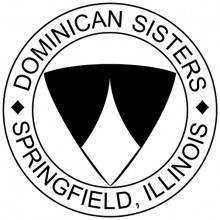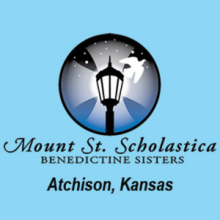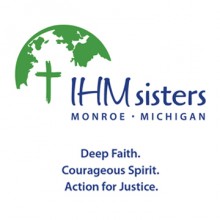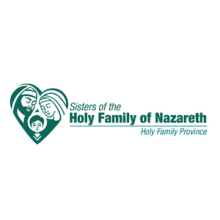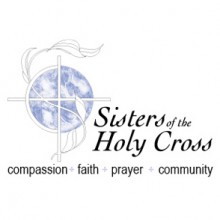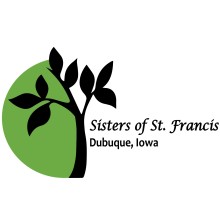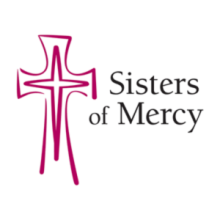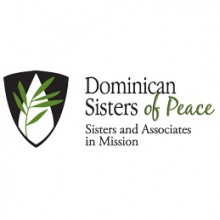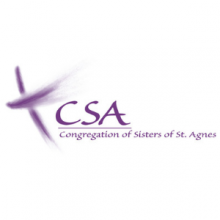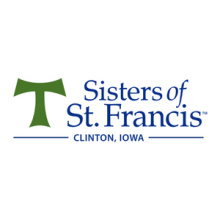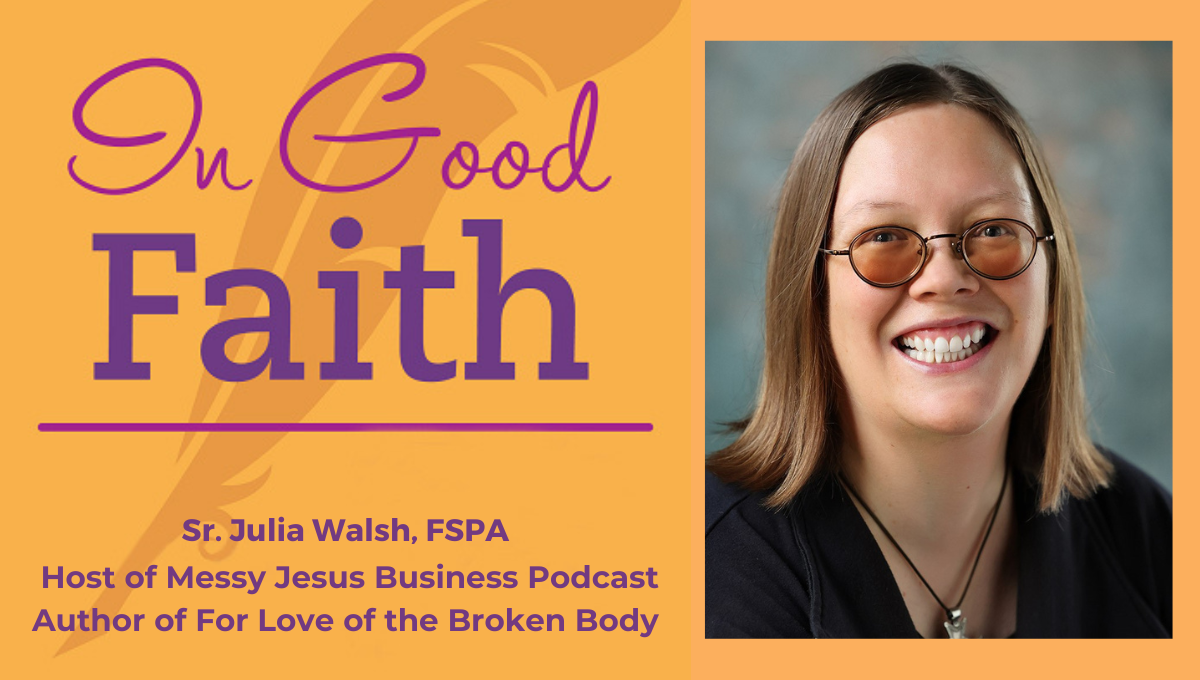
After suffering through an accident that could have ended her life, Sister Julia Walsh, FSPA, has found joy in her vocation -- and in her life within a body that was broken. She speaks with Sister Rejane about discerning her vocation, recovering physically, why she felt called to write about her experience, and the importance of living our lives as both broken and blessed.
1:28 The Viterbo connection
3:10 For Love of the Broken Body
4:22 Too much honesty?
7:49 The incident
16:30 Eucharist means thanksgiving
21:22 Brokenness in the human experience
23:52 Discipleship at a very young age
30:38 Embrace the cross!
33:37 The dying of self
36:03 Vows of poverty and obedience
40:53 Is it a call, or is it ego?
44:31 Life isn’t picture perfect
50:32 Ritualizing the day
54:12 The Franciscan way
Franciscan Sisters of Perpetual Adoration
Let us know your thoughts about the podcast! Please take this short survey—your input helps us shape the future In Good Faith podcasts. Click HERE to take the survey. Thank you!
Don’t forget to call us and leave a message. Tell us what you like, ask a question, or just say hi. Call 913-214-6087.
Sister Rejane
Hello, I am Sister Rejane Cytacki, the director of A Nun's Life Ministry, and you're listening to In Good Faith. Today, wrestling with a religious vocation is not for the faint of heart, especially if it includes a 20-foot fall from a cliff. Join me today as I explore what it means to be blessed, broken, and shared with the world as I talk with Franciscan Sister Julia Walsh, as we discuss her book entitled For Love of the Broken Body: A Spiritual Memoir. Welcome, Sister Julia.
Sister Julia
Thank you, Sister Rejane. What a pleasure to be on A Nun's Life. What an honor. Thank you.
Sister Rejane
You are welcome. And for our listeners, Sister Julia is also a podcaster. Her podcast is called Messy Jesus Business. We have a link on our website. You are welcome to check that out.
Sister Julia
Yes!
Sister Rejane
It's always fun to have someone who understands the world of podcasting.
Sister Julia
Right, right, right, right.
Sister Rejane
So Sister Julia's community is in La Crosse, Wisconsin. Your motherhouse is St. Rose Convent, correct?
Sister Rejane
Right. Right.
Sister Rejane
Yeah. And you have Viterbo -- is it college or university now?
Sister Julia
University. Our sisters founded it, but we no longer sponsor the institution. We have relationship with it, however.
Sister Rejane
Okay, that was my question. Well, my connect with Viterbo is my mother is an alumna of Viterbo College.
Sister Julia
Oh my goodness!
Sister Rejane
Yes. She graduated in 1967. And was one of the first groups that got her Bachelor of Library Science in Medical Records.
Sister Julia
Wow.
Sister Rejane
Yes.
Sister Julia
How interesting. I'm pretty sure that's not a major anymore.
Sister Rejane
Yeah. The name has changed. It's now Health Information Management.
Sister Julia
Oh, okay.
Sister Rejane
Back in the day, it was Medical Records. And they housed it within the House of Library Science.
Sister Julia
How interesting. That's amazing.
Sister Rejane
And she had five women in her class. And one was a sister, a Franciscan sister from Milwaukee. She doesn't remember a lot of names -- she lived in the dorms -- but she knew a lot of your sisters.
Sister Julia
I bet there were many that were -- yeah. So many were working on the campus in those days and running everything and, now I think we have one sister on the faculty, Sister Laura Nettles. You know, religious life is in flux.
Sister Rejane
Right.
Sister Julia
Things are changing all the time.
Sister Rejane
That is so true. That is so true. Oh my gosh. Gosh, so your book, For Love of the Broken Body. I just have to say I've read it twice.
Sister Julia
Twice?
Sister Rejane
I've read it twice. It's that good.
Sister Julia
You're the first person to tell me that. Okay, I'm glad it was good. And it wasn't because you didn't understand it the first time.
Sister Rejane
No, no, no, no, no, no, no. For the audience -- Sister Julia does such a great job of sharing with us her discernment to become a religious sister. Obviously, you're gonna have to share why you picked the title For Love of the Broken Body. But I just have to say there's such depth in there. And I so appreciated your vulnerability, and being so authentically you. There's just so many powerful nuggets! I'll probably share some quotes as we go, Sister Julia, because some of them, I just have to sit with. Yeah, so I just wanted to share that. It's a real prayerful reflection.
Sister Julia
That's amazing to hear. I hadn't heard that feedback yet. Mostly people have just been saying that they are impressed with how honest and open I was. And also that they think it's beautiful, which is like, Oh, that's nice. I made something beautiful. Oh, and a few people told me they read it really fast. So I'm like, Oh, cool. I wrote a page-turner. Isn't that fun? That's thanks to good editors for sure. I'm really grateful to hear that the vulnerability is something that was impactful for you as a reader. And that other people are picking up on my honesty. And some people might be wondering, why would you be so honest? Right? I mean, like, literally, there are pages from my diary in this book, and very private thoughts and conversations that when they were occurring, I just thought were going to be between me and God. Right? I never thought any of this would go public. But when I began to feel called to write this story, and to share it, and I was conscious of the power of it, and I was considering, as an author has to do, what is the message of the story -- what messages do I need to convey through this, through how I tell the story and frame it and the approach that I take. And I realized that I really wanted to invite all people to consider how they could be more truly who they are, and give wholeheartedly of themselves for the greater good. No matter how broken they are, or broken they feel, there is belonging and purpose and sharing of oneself is for the greater good. So if what I was hoping for other people is that they would be vulnerable and honest and give of themselves and give of themselves in ways that might be really challenging, because they feel so vulnerable, when they're sharing their brokenness with other people through their acts of service, or solidarity or presence, or even in the simple act of storytelling and sharing their story with others -- if that's what I was hoping would be an outcome for the readers then I realized, as the writer, as the author, I had to be modeling that. This story wouldn't be strong if I just kept it within what was comfortable for me. And the impact of the story wouldn't be as great if I just stayed within what was safe was. And I really thought I was going to tell the story of --I don't know, Rejane, I'm starting to ramble. But do you want me to just say what happened?
Sister Rejane
Yeah. For our listeners, there's a pivotal incident that I think Sister Julia can talk a little bit about. And this whole book is kind of unpacking it on so many levels. Even your title, For Love of the Broken Body, has so many different layers of meaning. But you've got to share your incident because that would help people to understand what you mean by broken.
Sister Julia
Yeah, and I mean a lot of things by broken. And I mean a lot of things by body. So I entered the Franciscan Sisters of Perpetual Adoration based in La Crosse, Wisconsin, at St. Rose Convent, as you as you said, when I was 24 years old in 2006. And then a year and a half later -- so I was 25 -- I entered the novitiate and began the two years of intense preparation for my first profession of vows of poverty, celibacy, and obedience. So the motherhouse of my community is just an hour and a half drive from where I grew up in the hills of Northeast Iowa. And by hills, I mean, like steep canyons and drop-offs -- really steep. I don't know if anyone's ever been to Dubuque, but that's the landscape. It's so hilly. It's like San Francisco. It's so steep. So anyway, I grew up in a very scenic, scenic part of Iowa. And okay, so around this time, I found out that my parents decided to sell the farm that I grew up on. And I was devastated because I figured this farm would always be my home. And here I was, trying to adjust to this whole new community, this whole new lifestyle and not really sure what I was doing with my life. And another thing was being taken away from me -- so it felt.
Sister Rejane
Which is a part of our identity, right?
Sister Julia
Yes, my home. Where we come from. Right. Yes. So my home was no longer going to be this farm. And now I was, in a way, being forced to accept that the motherhouse and belonging to the community of sisters was my new sense of home and belonging. And here I was, though, as a novice, in a period of my life where I was expected to be integrating all the changes in my life in a really prayerful way and being privileged with the time and in the space to do so. So I asked my novice minister if I could take a day of prayer and reflection and go back to the farm and pray my goodbyes to the land that had made me into the young woman that I was. And she agreed, thanks be to God. So that's what I did. It was a Friday afternoon, it was the end of June. And I took what we call a Hermitage Day in the Franciscan tradition. That's part of our spirituality, is to go into hermitage. The hermitages can really be anywhere, but we're going into solitude and silence. When I got back to the farm, nobody was home. So I just went into the pasture, and I set up my camping gear, and I was planning to spend a whole night in the woods, praying by myself and reflecting on everything and trying to say goodbye to this land and to the space and allow the changes that were occurring to occur. To try to accept it.
Sister Rejane
Well, and kind of rich ritualize it, too, in a way.
Sister Julia
Ritualize it, yes. And ritual was something that sisters were teaching me again and again, during this time, the importance of doing ritual as a way to integrate the changes so that as we are experiencing changes internally, they're also happening externally. Yes. So I was back on the farm, and I was camping, sort of on the edge of the pasture, and on the edge of a cliff. And looking down at the bottom of the cliff is a creek, where I used to go swimming and everything with my siblings. And I chose to try to climb down the cliff like I had done when I was a little girl, no problem. The and the way I was climbing down was not backwards, like one might do on a cliff, but was actually face forward. And I was kind of like holding on to branches and stepping down. So anyway, I stepped down and one of the rocks crumbled, and I couldn't hold on to the branch anymore. And I fell face first off the cliff and into the creek, and I crumbled my face. My face broke, from my eyebrows to my chin, my jaw split, teeth popped out of my face, my glasses got jammed into my face, and then they washed downstream. My hand and my wrist also broke. And there I was all alone in the woods. And I had to choose life. In many ways I think of in the book of Deuteronomy, when the Israelites were told by God to choose life -- this was my “choose life” moment. I had to fight to live. And I realized I wasn't paralyzed. But I had to figure out how to get out of there. And I did. And I eventually made it back up to the farmhouse and then was in communication with 911. One of the amazing things though, is I only had a cell phone for three days.
Sister Julia
I was shocked reading that. I'm like, holy cow.
Sister Julia
The community talked me into -- like, Yeah, we really think you should have one. I don't want to -- how does this fit with my vow of poverty? I mean, it was 2007. In those days, not everybody had cellphones. So yeah, I made it up to the farmhouse. Then there I was: a novice in the hospital, in ICU, having reconstructive jaw, nose and face surgery, spending time with my sisters in basically our nursing home, which we called Villa St. Joseph at the time. And then in our Assisted Living Center with our retired sisters, living alongside my senior sisters who were experiencing their own brokenness and frailty in their elder years, with their own health problems. And as the youngest and newest member of community I was right there alongside them and accompanying them.
Sister Rejane
And it was humbling.
Sister Julia
Yeah. Well, maybe this was just my disposition. I mean, you know, me pretty well, Sister Rejane. I actually remember like, yes -- I was like, well, this was amusing. I'm 25 years old, in a nursing home, okay. But I also was thinking huh. This is kind of nice. I get to know these sisters that I wouldn't have a chance to know otherwise. And oh, cool, I get to play bingo with them, I get to go to pet therapy, do all these things that, had I just been an ordinary novice, they would not have become part of my daily life unless I was like going out of my way. Right? It was a way to be in solidarity. Well, maybe it wasn't solidarity, because solidarity is chosen, isn't it? This might have been not chosen. [laughter] I guess I chose to live well,
Sister Rejane
I mean, maybe compassionate accompaniment. What I hear coming through, and I see it in the book, is -- the way you just spun that. You had such a positive attitude. I just have to think for myself, I think I would have turned inward and been kind of having the pity party a bit more. And you saw this as an opportunity to -- like you said -- get to know your sisters. And I just think that power of how you look to the world, as well as your relationship with Jesus. You can just see that in this book, how it how it shines through as one of your strengths.
Sister Julia
It was total grace. It's all grace. It really, really is. I mean, it is amusing. I really dug deep into the memories and the details and the story. And I began to think about -- like, for example, the night when I was in the ER, and they were X-raying my whole body. And I remember I was laying there and I was so full of joy. I was so happy to be alive. And I was just wanting to praise God for the fact that I had survived this horrible thing. And then all these people were being so nice to me, and I just couldn't believe it. I was just filled with joy and gratitude. And I remember that, and I wrote out that scene so people can read about it, but only like, years, years, years later, when I'm writing the story. And by this point, I've learned more about theology and the charism of my community and I'm thinking, Oh, I am committed to a Eucharistic Franciscan community. We are the Franciscan Sisters of Perpetual Adoration because we adore the Eucharist, the Blessed Sacrament, all the time in La Crosse, Wisconsin, and that devotion to the Eucharist is what fuels our apostolic life, our life of service and solidarity and presence to those on the margins. Okay, yes. What does Eucharist mean? Eucharist means thank you. Eucharist means thank you. Thanksgiving. So here I was; I haven't even hadn't even made vows yet. But it was like, Oh, I must be a Eucharistic person. Because even in my most broken, literally physically broken time in my life, I was feeling gratitude. And that's just grace. Right? That's grace. There was a temptation when I wrote the book to theologize and go into "Oh, and don't you see how Eucharist means thank you?" No. I just wanted to tell the story. And then maybe the readers would make those connections on their own.
Sister Rejane
And that goes into kind of the next level, you know. For the love of the broken body -- you've just talked about the physical incident. And as you're talking now, like eucharistically, right? Jesus's body was broken for all of us in his crucifixion and his passion. And so was his bread, right? His body is broken for us.
Sister Julia
Yes. Yeah. I recently was looking through my files and I discovered that in really early drafts of this book, I had some really -- I'm trying to think of a nice word to say and all I can think of is poopy. [laughter] Really not very good titles -- not titles that were as strong as this current title. They just didn't roll off the tongue as well as For Love of the Broken Body does. For example, I had Being Broken Bread as a title, or Being Blessed and Broken. So I wanted to communicate that the story that I experienced is a story that's a lot like what Christ is doing for us at every holy Mass, as Christ is offering himself on the altar as broken bread that is blessed and shared. And I hope that in my story, the readers notice that there's an arc. The story starts off as a showing how blessed I am. And then there's the story of brokenness. And there's ultimately the arrival to vows which is an experience of being shared and sharing.
Sister Rejane
I love that. I love that. It's a movement, right? There's movement; you're not just staying in one phase of life. Right? You're transitioning. And I get the sense that that the wisdom of your sisters in ritualizing, these transitions really help you healthily keep the movement going.
Sister Julia
Right. And I believe it's the arc of every human life and it's the arc of every story. Because we are part of the broken body of Christ. We are part of the Mystical Body of Christ. And so the story of Christ broken on the cross, broken in the Eucharist, is also our story of communal, global, relational brokenness, that we experience. This is one slice of the human experiences is my story, my book, but I hope that every reader will be compelled to reflect on their own stories of brokenness and how they have also experienced -- how they how they also have been blessed, broken, and shared by who they are. By the ways they say yes to Christ.
Sister Rejane
Absolutely. It's powerful. It's just such a powerful connection. We are going to take a quick break. Thank you to all our donors and sponsors like you, who support A Nun's Life Ministry and our In Good Faith podcast. We will be right back.
Sister Rejane
Welcome back. I am Sister Rejane of A Nun's Life Ministry, and my guest is Sister Julia Walsh, author of For Love of the Broken Body. You can find past episodes of In Good Faith and all our podcasts at anunslife.org and on all the major platforms where you get your podcasts. I want to back up. I mentioned a little earlier, your personal relationship with Jesus -- it's beautiful, and it's woven into the pages of this book. Can you share with our listeners -- do you have a first memory of when you really had a personal relationship with Jesus? Was it when you were a kid?
Sister Julia
I think that story's in the book.
Sister Rejane
Oh, yeah.
Sister Julia
Do you mind if I find it and just read it?
Sister Rejane
Yeah, that would be great.
Sister Julia
You ready?
Sister Rejane
Yeah.
Sister Julia
So this is an excerpt from chapter four. "In my earliest memories, I'm four years old and studying the grass under the clothesline on a bright sunny day. Probably prompted by a lesson I learned at the public library story hour. I'm thinking about the number of the languages in the world. There are more languages in the world than I can count. Can I know all the languages when I grow up? No, not if there's hundreds or thousands of them. Numbers I can't even count to. Is there anyone in the world that knows every language? No one could. Except God does. God can understand everyone. My heart and mind were burst with wonder. I ran to the house to tell the nearest person I could find the good news. Skipping through the front porch into the kitchen, the screen door banging behind me. Mom stood over the stove stirring something in a pot. 'Mom, God knows every language in the world,' I proclaimed. 'Yes, that's right,' she said, smiling. 'Very good, Julia.'" I don't know if you have ever read Parker Palmer's book, Let Your Life Speak. I haven't read in years and years. But when I visited my community, the Franciscan Sisters of Perpetual Adoration -- I'll call them FSPA for short from now on -- when I visited them for the first time, or one of the earliest times, I remember the vocation minister, Sister Dorothy, suggesting that I read that book throughout the week. And I remember that in that book, Parker Palmer suggests that a person thinks about their earliest memories in their life, and then sort of analyzes them, and thinks about what's happening, and what that says about who the person is and who they're called to become, and how they're meant to be living their life. So this is one of my earliest memories of my life. The other early memory in my life includes me in nature. I was at a campground, and I was riding on a trail on my dad's shoulders. So there was just a connection with another person, and I was in nature. But this, this was an experience of me having an interior life. Before I had even started school, I'm pondering the things I'm experiencing and learning about. I'm pondering how awesome God is. I'm pondering the diversity of the world. And wanting to be connected with people all over the world. Right? And I am in awe of God's power, and of the diversity, the universality of who God is. And I become a little evangelist. I run and I tell the closest person the good news. I hadn't yet entered FSPA, and I was just pondering this memory and I realized, Oh, my word, I have been in love with God for my whole life. And I've always had this desire to share my love of God with other people, and to help other people know who God is. Yeah. This is just me since toddlerdom. It's amazing. It's amazing.
Sister Rejane
It is amazing.
Sister Julia
Yeah, yeah. As far as for like, a relationship with Jesus Christ -- I think in my childhood, I was in love with the Creator God. I grew up on a farm, I was playing in the woods, I was seeing the beauty of creation everywhere I went. And that that God made sense to me. And I had a lot of reverence and desire to please this God that I knew and loved in creation. I was a child of the 80s and the 90s, a time that's a lot like our own time, where there's a lot of confusion and mixed messages in the church. And I could go to one church and hear the Bible stories interpreted another way, and go to another church and hear the Bible stories.... So those questions of who Jesus Christ is and what his message is, and what it means to imitate Him and live life for him, and who is the Holy Spirit, and what is her power? All that was stuff that, as my faith matured, and I came to a deeper sense of my own identity, and continued to say yes to God's love more and more, I gained more clarity about the other persons of the Trinity and their power in my life. Yeah, so I actually would say that my relationship with Jesus Christ was something that probably became more real and intimate in my teen and adolescent years, and into college, and my relationship with the Holy Spirit and all three persons of the Trinity I feel like is something that is now very real to me at this stage of my life now that I'm in my 40s. It's really hard for me to pinpoint -- maybe I've been in relation with the entire Triune God the entire time, but it's just my own limited understanding through my humanity. I can't sometimes unpack the mystery or experience the mystery without deepening my own contemplation, and understanding scripture better, understanding tradition better. Understanding myself and humanity better too.
Sister Rejane
I feel like Jesus is very difficult to understand when you're young, in the sense of being crucified. And until you've lived life and had some suffering, then it allows you to connect in with Jesus's humanity and gratitude. In a way lived the Paschal mystery yourself through your own flesh and blood, connecting into it in a real concrete way that a lot of us have not. I could see where it would deepen your relationship. Because I think the beauty of being a Christian is you can't go around or over the cross, you have to go through it. I've mentioned, I think, in some of my podcasts, when I was in high school, I really struggled with depression. I still have some, but was suicidal. And, over the years, I've come to recognize that God is with you even in your darkest moments. That's the Paschal mystery: you're not abandoned, you're not alone in your brokenness, God loves it all. He loves the mess. And so as Christians, we have to embrace that cross, knowing that there's new life. But you've got to keep moving through to the other side. You know, it's scary. I mean, any of this is, and I think of what you went through in your recovery. And it affects the rest of your life, when you have life changing incidents. You just constantly learn from it. And that's what you're supposed to do: keep transforming into helping and reaching out to others. Like now, I volunteer with the National Suicide Lifeline.
Sister Julia
That's beautiful.
Sister Rejane
I've been able to transform -- but not by myself, but with the grace of God -- to give back to others in a way that other people would be like, I could never do that. It's part of my lived experience. I can be there in other people's darkness to try to be that body of Christ to them. You're not here alone. I'm at least listening to you. It's the best I can do.
Sister Julia
Right. Yeah, yeah. Going back to nature again, we see in God's creation, how again, and again, the Paschal mystery of life, death and resurrection is ordinary. We see again and again how other species die and give of themselves and that becomes fertilizer for new life to come. How a seed must break open, and ultimately, the seed is dying, so that a new sprout can come up from that and things can bloom and things can grow. And eventually, maybe a tree is offered like an entire home and shelter, right? We can look to the cross, yes. We can look to the stories of Jerusalem and Jesus's last days on earth, and what happened after Easter. Absolutely. And we can look to the wonders of creation all around us, and listen to the beauty of what God has made and notice there too, that this Paschal ministry is part of God's designs. Absolutely, it is through the death, and the dying of self. Or like for me, allowing my sense of who I am and my former face or my sense of what is home or -- all that to die and to be broken, then there was transformation that was allowed and new life was able to sprout forth. And I hope that my offering of myself to the church, through my vows, continues to offer life to others. I guess I just trust that it does. So here I am.
Sister Rejane
And it leads you into the sharing, right? That idea of blessed, broken, and shared. And that's where you see your vows allow you to open up to an availability -- a radical availability, in a way, with people.
Sister Julia
Right. I mean, we talk about part of the vow of poverty as -- at least in the Franciscan tradition, maybe it's the same in yours, your congregation, in your spirituality -- but in in mine, it's both spiritual and material poverty. So I don't own any private goods. And I have no private bank account, and so on. Sure. But more importantly, I'm really working to not cling or attach to any idea or any feeling or thought, and constantly be surrendering and giving. And if I'm clinging or attaching to anything, then it's too much about me. But if I'm giving to others, then it's about the community. It's about sharing, it's unleashing it for others. It's a release, a relinquishment. So then the things I offer -- I mean, I hope in this book, I hope it's my creative heart. And I hope that that offering allows other people and invites other people to some greater consciousness of how God is working in their own lives., invites some contemplation, invites some sort of reflection, and ultimately brings more and more people into greater communion with each other and with Christ. That's how it works, you know? And it would have been a lot easier for me. Like once my sister said, "Julia, you can write well," it would have been easier -- and a lot less vulnerable -- for me to say, "Oh, thank you very much, but I don't want to." But that would have been hiding my light under a bushel basket. Right? That would have been protecting myself, my own ego. That would have been protecting my pride, staying in my comfort zone. But I was forced by my vow of obedience, poverty, celibacy, all of it, to give all I am. So here we are.
Sister Rejane
Yeah, well, I don't know -- maybe instead of forced, you were challenged?
Sister Julia
I don't know. [laughter]
Sister Rejane
Right. But that's our struggle, isn't it?
Sister Julia
Yes, yes.
Sister Rejane
I always say, wrestling with God is --
Sister Julia
It is. And I do sometimes really have a feeling that I live my vow of obedience like a toddler.
Sister Rejane
Okay. Explain more. [laughter]
Sister Julia
Sometimes it might come out externally, but really, internally, I am fighting and I'm stomping my feet and saying, "No, I don't want to." Like I'm having a little temper tantrum, while I'm actually still doing the thing. So I cooperate. And my body shows up and I do the thing that I don't want to do. And I see how good God is and how God's plans are better than my own. And God is trustworthy and if I'm living according to God's will, instead of my own will, that's going to be fruitful and better for everybody. And yes, some days I do show up with a great attitude of gratitude, or a really willing spirit or a hungry heart. Sure, but the really hard things -- like "Julia please write this book and share this story with the world" -- oh man. [laughter]
Sister Rejane
That really made you stop, didn't it. You really had to take the time to kind of work through the can I really do this? I don't even want to do this. Oh, wow, I didn't realize that you really had to be nudged to write this book.
Sister Julia
Again and again and again and okay.
Sister Rejane
Yeah, that's God's grace right there.
Sister Julia
Yeah. God waits. God waits and allows us the freedom. And of course, I do have the ability to say no to God. We all do. And God loves us just the same, right? God wants us to say yes with joy and love. Absolutely. For me, though, since I took a vow of obedience, I do feel like I have to say yes, once I realized I'm being called to do something.
Sister Rejane
Well, yeah.
Sister Julia
I mean, that's why the gifts of discernment are so important. And we have to be discerning, is this a call, or is this ego? Is this of me? Or is this of God? Or is this something other people are projecting upon me and saying that they think I should do, right? And so thank God for phenomenal spiritual directors, and friends and sisters, my community and therapists and doctors, tons of people who over the years have really been mirrors for me and have helped me to gain clarity about what I'm really called to do and, sometimes, they helped me to also gain clarity of like, no, that's just a Julia idea. Let's move on. Nice idea, Julia. But no. [laughter]
Sister Rejane
We are going to take a moment for a brief break. This is In Good Faith, a program of A Nun's Life Ministry. We want to thank our sponsors and individual donors like you, whose support makes the In Good Faith program possible. Please visit fwww.anunslife.org for more information, to make a donation, or to become a sponsor of the ministry. We will be right back.
Sister Rejane
Hello, listeners, we are back. Let's finish our conversation with author Sister Julia Walsh and her book For Love of the Broken Body.
Sister Julia
My sense though, Sister Rejane -- I don't know if this is true for you. But some people when they're just starting things, they look for confirmations, like signs, like, Oh, these are the signs that really prove that this is the thing. For myself, I just try to pay attention to what's going on in my thoughts and in my prayer and my dreams -- my night dreams, my daydreams. What am I finding myself trying not to think about, but then I keep thinking about. And when I was discerning the call to write this book, I kept noticing that, at every Mass I would attend, I would find myself making connections to my memoir, to my story, to my accident story, to my experience of discernment. And I just kept thinking about it all the time, especially when I was in the presence of God at Mass. Like, Oh, this is a way I could put it in the story. Oh, this is one way I could put it in the book. Oh, there I go thinking about a book again. [laughter] I just kept trying not to think about it. And then I kept thinking about it. So for me, that's oftentimes how the spirit nudges.
Sister Rejane
That's beautifully said. Yeah, yeah. I think discernment is not something we have access to in our culture really well. I field a lot of questions from people that are wanting to explore religious life. So that was a beautiful example of what works for you. It just keeps popping up in your head.
Sister Julia
And it's different than an obsession. And I think that's an important distinction. Because sometimes I would worry about that. And that's when I would go to spiritual direction or therapy and I would talk about, I keep thinking about this thing, and then they would ask questions to help me sort through where it was coming from and what were my motives and well, do you really want to do this? No, I don't think I want to do this. I don't want to explore was my story of trauma and vulnerability and wounds and brokenness to the world. Why would I want to do that? [laughter] In the end, I think God convinced me that by offering this raw, true story, there would be a lot of positive possibilities for the church and for society. This offering of story is something that could ultimately more and more people into the Paschal mystery of transformation, and hopefully offering their own brokenness for the world, I really just feel this motivation to normalize brokenness. Another way that our culture seems to be immature to me, is that we just really like picture perfect devotions. And I would say that technology, I think social media in particular, is not very helpful with this. We could be scrolling online and see all these really beautiful people that are living a very cute, religious life in their homes and look at their beautiful home altar, and wow, their clothes are really fashionable, and they don't have any stains on their outfits. Like everything is clean and orderly, all their kids seem to be so well behaved, and whatever. That's not real. That's not raw. That's not the fullness of humanity. The fullness of humanity is expressed through Jesus Christ's whole story of being born, in the most humblest and broken of ways, in a barn of all places, alongside animals. And for shepherds, the poorest and the marginalized of society to be adoring him, and then to be living this this life where he says, Even the Son of Man has no place to lay his head. This poverty of, of brokenness is the story of Christ, and we are called to imitate Christ. So picture perfect images of what it means to be Christian, or thinking that once we devote ourselves to Christ, life is going to be really orderly and feel really great, is not helpful to anyone, because we're just gonna continue to encounter suffering and failure. Only by imitating Christ and embracing the brokenness that Christ modeled for us, can we gain the freedom and the joy to just be like, Oh, here we are, being human. And that's liberating and better for everyone. What I hope for is that in all of our spaces, whether it's our homes, in our parishes, in even our civic spaces, that people don't feel like they have to be good enough to give. We can show up and share, no matter how broken we feel, no matter how broken we are. Our God is a God who embraced disability on the cross. Our God is a disabled God, a God who needed other people to carry his cross for him, because he was so wounded and beat up. We can turn to community and share of our lives and ask for other people to accompany us. That is what Christian community is called to do. That is ultimately one of the messages I'm hoping people take away from this: how can they give of themselves, no matter if they're feeling broken? Now, maybe I should make the distinction: that does not mean you show up and vomit your story of brokenness upon other people. We don't need to oppress other people with our brokenness, and I don't want my story to be doing that. But I do hope and pray that we can recognize that we all can be like Christ, we can be wounded healers. Jesus came back at Easter with his wounds still visible and tangible to the people that he loved and knew, and still knows, to us. There's no reason why we need to hold back from revealing our wounds to those that we trust and that care for us. And we should be ready to receive the woundedness of others and respond to that with compassion and care and support and encouragement and say, Hey, yeah, you belong here. We need you. Please help us out in this way.
Sister Rejane
That's beautiful. Amen! That was beautiful. I have to ask: do you ritualize the event every year when June 29 comes around? Do you take time or space to kind of honor that time?
Sister Julia
Sometimes I do, sometimes I don't want to.
Sister Rejane
Okay, that's fair.
Sister Julia
June 29 is a hard day.
Sister Rejane
Is that a hard day usually?
Sister Julia
Usually it's a hard day, because it's a day when I realize I could have died.
Sister Rejane
Okay.
Sister Julia
I think about how many years it's been. I find myself usually just simply looking back at pictures of what my face looked like before it was broken. Wondering how my face might look now, and how I would be different had this not happened. Wondering a lot of existential questions that aren't actually helpful. Sometimes I really feel the feelings and I feel the sorrow, and remember the pain and the suffering. Because yes, there was a lot. And that has sometimes been helpful to me, to just sit with the sorrow. Sometimes I've asked other people to sit with me in the sorrow. I think this past June 29, my community that I'm living with asked me what I needed on the date of the anniversary. And I said, I think I don't think I want to talk about it, but I just want people to be present to me. And then the person that was leading prayer that night, invited us to do some art. And I ended up making an art piece that night, that was partly about brokenness. But it was really colorful and bright. And it seemed more like -- it wasn't made of stained glass, but it had that look of a stained-glass window. And in the middle was an image that kind of represented a broken face. But then there were all these layers and ripples of color and life that came out from it. At this point, I had submitted my manuscript, but my book was not yet done. So I was in that phase of, Oh, man, the world's gonna know this story -- or at least a few hundred people that read the book or whatever. [laughter] I think that was really helpful ritual, and that art remains very meaningful to me.
Sister Rejane
What I'm hearing is so much of holding both that fragility and vulnerability and that pain, but there's joy. You seem to hold both, that tension -- which is our Paschal mystery.
Sister Julia
You know, it's also the Franciscan way. St. Francis of Assisi was a man who also knew so much great suffering and was also incredibly enamored with the power and the love of God and a bit bonkers in his playfulness and joyfulness. And people identified him in the middle ages for that holiness. But I do think if he were doing some of the same behaviors today, people would write him off. Anyway, so it's very Franciscan. There's a story that I tell in my book about St. Francis's sense of what perfect joy is, and how perfect joy is an experience of when you feel rejected, when you feel cold and hungry and lost and lonely, and your own people are turning you away. And you still feel the joy because you know the love of God. That is perfect joy. So in the worst of suffering, to still know joy is the Franciscan way. It's the Franciscan path. And it's also Franciscan to not turn away from suffering. Saint Francis of Assisi loved Jesus so much, that he wanted to be in union with Christ, and be in communion with Jesus in the way that he would physically in his body know the suffering that Christ experienced on the cross. And he was praying for this and received the wounds of the stigmata, which he had to suffer until the end of his life. He was constantly bleeding from his wrist, from his from his hands, and had to wear bandages for the rest of his life until he died. And then he also in his service, and his solidarity with the poor of his day, the lepers that he lived with and shared life with and cared for. He likely suffered from leprosy himself. He was also blind at the end of his life. So this surrender to suffering and recognizing that we can't avoid it; it's part of the path of humanity, the path of holiness, that we're meant to embrace. Not that we need to be oppressed -- I think that's important. There's a difference between suffering and oppression. So out of his own will, he was choosing this, and that allowed for him to come to greater intimacy with Christ again and again. That's definitely one thing that became even more apparent to me as I wrote this story: Man, I'm so Franciscan.
Sister Rejane
So this book in a way was an affirmation of your call to religious life.
Sister Julia
Yeah.
Sister Rejane
Well, I have to share this quote, because it's always stuck with me. It's on page 61. And it was your Sister Janet, your spiritual director, told you -- and this is before your incident -- she said, "I had a vision that you were becoming bread in Jesus's hands, that he was about to break you and share you with others, to help others become more whole and connected as one body." And I feel like that sums up what this conversation has been about, Sister Julia, in so many ways. There are so many like premonitions. And I loved how you touched on them in the book, but that sentence kind of resonates for me.
Sister Julia
May God bless Sister Janet. I do remember her saying that to me on that retreat and being so confused. [laughter]
Sister Rejane
Yeah -- what does that mean?
Sister Julia
Why are you saying this? What in the world? Yeah. People have asked me, how did you remember all these things? Well, I was a very avid journaler. So I went into my journals and studied them. And I studied all the documents from this time in my life. I mean, I'm in my early 40s now, as you know, but this was the era of when I was 24 to 27-ish. And during that time, one of my biggest coping mechanisms was to just be writing out my prayers to God and processing on the page, which I thought was gonna be a private page. [laughter] And here we are.
Sister Rejane
And here we are.
Sister Julia
So, God of surprises -- you just never know, once you start saying yes to God, you never know where it's gonna lead. I invite all the readers, all the listeners, to just say yes to God wholeheartedly with their whole lives, with their body, soul, and mind, and be ready for a wild adventure.
Sister Rejane
That is a great ending right there. Oh my gosh, but we have to find out where can we get this book, Sister Julia?
Sister Julia
For Love of the Broken Body is actually available everywhere books are sold. You can buy it at your major booksellers like Amazon or Barnes and Noble or whatever. I highly recommend that people buy it from bookshop.org, which works with independent booksellers. You can select the local independent bookseller in your area that you're supporting when you purchase from Bookshop. So please buy your books through Bookshop and keep those small neighborhood independent bookstores alive and thriving. And a shout-out to my publisher, Monkfish Book Publishing, who is an amazing publisher. They publish so many really good books. They're an interfaith, interspiritual publisher. So they've published books from all sorts of religious traditions. And I feel very privileged that they've selected me to be one of their Christian authors with other writers like Mother Teresa, for goodness’ sake. [laughter] Isn't that hilarious, Sister Rejane?
Sister Rejane
I think it's great. Why not? Why not?
Sister Julia
But there you go. So anyway, I hope the listeners check out all the different books that they offer, because there's so many gems.
Sister Rejane
Well, thank you so much, Sister Julia, for taking this time today.
Sister Julia
My joy and pleasure. Thank you for having me. And thank you for giving of your life and embracing the brokenness by the offering of yourself, of your time and your talent and your energy and passion. Thank you for saying yes to loving the broken body.
Sister Rejane
Thank you. In Good Faith is a production of A Nun's Life Ministry, helping people discover and grow in their vocation by engaging questions about God, faith, and religious life. This program is made possible through the grace of God and the support of our sponsors of A Nun's Life Ministry, and you, our listeners. Don't forget to call us and leave a message. Tell us what you like, ask a question, or just say hi. Call 913-214-6087 and visit us at anunslife.org. God bless.
This transcript has been lightly edited for readability.





